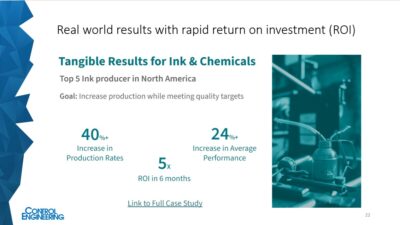Is it possible to conduct a self-audit to determine the “legal health” of a company in the automation industry? I would answer this question with a fairly confident—although very much qualified—yes. The reason for the qualification is that the legal health of a business has as much to do with its culture and people as it does with any “screen shot” that can b...
Is it possible to conduct a self-audit to determine the “legal health” of a company in the automation industry? I would answer this question with a fairly confident—although very much qualified—yes.
The reason for the qualification is that the legal health of a business has as much to do with its culture and people as it does with any “screen shot” that can be taken during an audit. Still, one difficult-to-dismiss “screen shot” that tells an important part of the story concerns the company’s legal documents. Are they in order? Or, perhaps more relevantly, do they even exist?
What do I mean by legal documents? I am taking a fairly liberal swipe at that. By “legal documents,” I literally mean anything on paper that purports to define legal relationships—whether those relationships are with customers or between persons within your organization.
What follows is a list of key legal documents that every company should either have or consider having:
At the risk of being obvious, it is important for an automation company to have its own standardized terms and conditions, whether in traditional contract form or as an attachment to a proposal. A standardized form of proposal is a good idea too—especially if there is some likelihood that that the proposal will simply be accepted by issuance of a purchase order by a customer.
Does your company typically deal with demanding customers that transmit non-negotiable, one-sided terms? If so, then you might consider some sort of standard contract rider or addendum that addresses the terms that your company positively cannot afford to live without (hint: the Control System Integrators Association has a very good one that some of its members have used with great success).
An employee handbook (listing all employee rules and obligations at your company) is an indispensable human relations tool for any sizeable U.S. business.
Is it important to keep your employees from departing to a competitor or customer? Then consider a non-compete agreement with a confidentiality stipulation added along for the ride. The latter will protect your company secrets from disclosure.
Various employee benefit documents should also be in order, including retirement, pension, profit sharing, 401(k) and employee stock ownership plans, as well as health, dental, vision, disability, life and tuition reimbursement plans.
Do you remember why you decided to do business in the first place as XYZ Integration Services LLC—as opposed to John Smith, Professional Engineer? Almost certainly because you were advised that the corporate form provided a shield against potential liability. But that shield, as it turns out, may not be so very sturdy after all if you do not keep those documents current, including the corporate minute book, bylaws, and other important corporate records.
Unlike some other construction or installation enterprises, perhaps the most important assets of a company in the automation arena are its ideas. So are they protected? They are more likely to be if your company maintains an intellectual property schedule of its inventions, business methods, patents, trademarks, and copyrights, has research and development agreements in place with its key employees, and a licensing agreement for use with customers.
Have I exhausted the list? Not by a long shot. Any company of substantial size should have a document retention policy to determine when it saves and discards paper and electronic information. Your company might also give strong consideration to formulating a disaster recovery policy for the unlikely (but devastating) possibility that a natural or man-made catastrophe disrupts business activity.
Finally, need I point out that having some sort of succession plan makes sense to the extent you may want to peacefully prepare for the time when the top persons are no longer around?
That’s it for now. Is this list of “must have” documents comprehensive? Probably not. Are all of these documents equally important? Well, no—but certainly one can imagine any one of the concerns addressed by these documents as potentially creating big problems if the documents in question are either nonexistent or hastily conceived. For that reason, among others, I hereby leave it for you (with the help of your lawyer, of course) to sensibly prioritize them.
Author Information
Mark Voigtmann is a lawyer with Baker & Daniels, LLP (Washington, DC, Indiana and China). His group assists the automation and process industry in structuring projects and resolving disputes. ( [email protected] or 317-237-1265).



